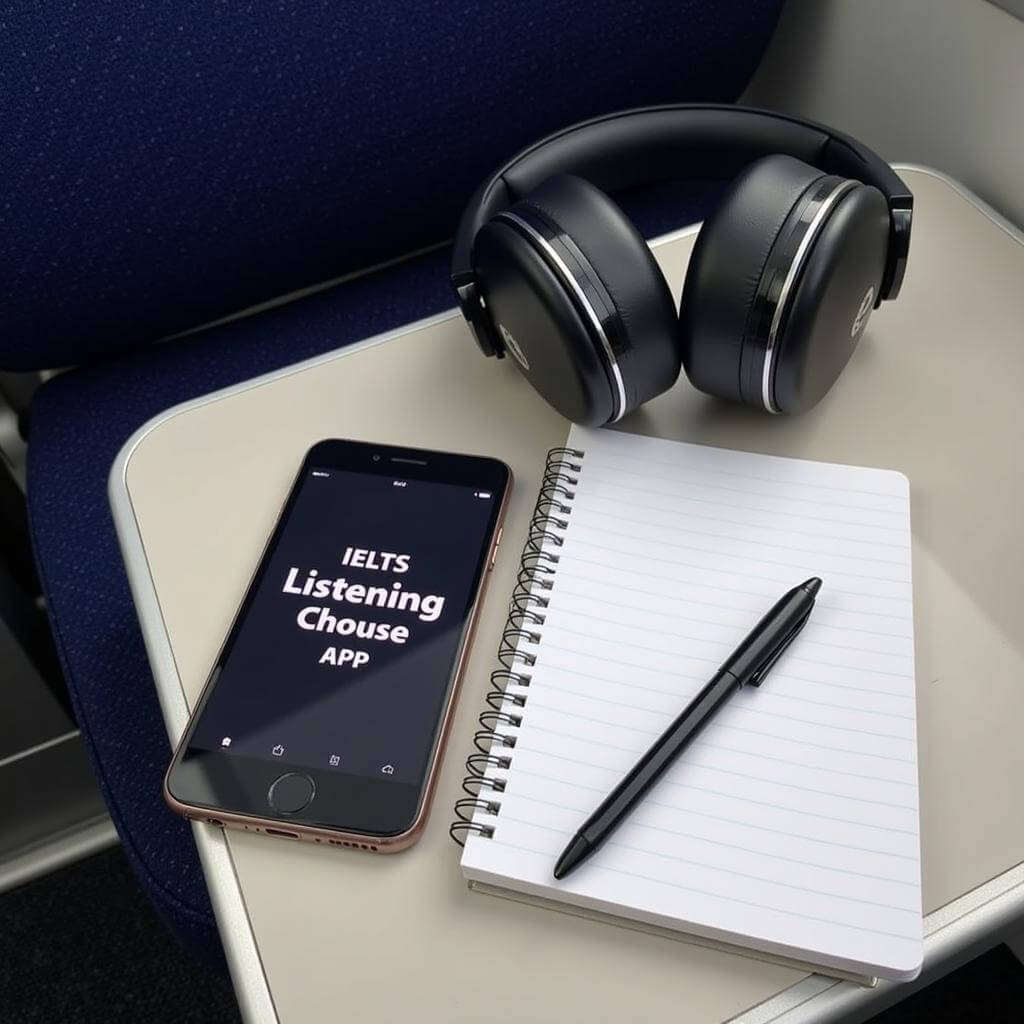Understanding the Importance of IELTS Listening Practice During Commute
Maximizing your time while commuting can significantly boost your IELTS Listening preparation. As an IELTS instructor with over two decades of experience, I’ve observed that students who utilize their travel time effectively often see remarkable improvements in their listening skills. Let’s explore how you can transform your daily commute into a productive IELTS Listening practice session.
Essential Tools for IELTS Listening Practice on the Move
To practice IELTS Listening while commuting, you’ll need:
- A smartphone or portable audio device
- High-quality headphones
- IELTS Listening practice materials (audio files and question sheets)
- A note-taking app or small notebook
- A timer or stopwatch function on your device

Effective Strategies for IELTS Listening Practice While Commuting
1. Download IELTS Listening Practice Tests
Before your commute, download official IELTS Listening practice tests or high-quality mock tests. Websites like the British Council and IDP offer free resources. Ensure you have both audio files and corresponding question sheets readily available on your device.
2. Utilize Noise-Cancelling Headphones
Invest in good noise-cancelling headphones to minimize external distractions. This will help you focus on the audio, simulating test conditions where clarity is crucial.
3. Practice Active Listening Techniques
While listening, employ active listening strategies:
- Predict possible answers before each section
- Focus on identifying key words and phrases
- Practice note-taking techniques, jotting down essential information
4. Time Management During Practice
Use your device’s timer to replicate the actual test conditions. Allocate 30 minutes for listening and 10 minutes for transferring answers, just as you would in the real IELTS test.
5. Review and Analyze Your Performance
After completing a practice session, use any remaining commute time to review your answers and analyze your mistakes. This immediate reflection can help reinforce correct answers and identify areas for improvement.
Tailoring Your Practice to Different Commute Durations
Short Commutes (15-20 minutes)
For shorter journeys:
- Focus on individual sections of the IELTS Listening test
- Practice specific question types (e.g., multiple choice, gap filling)
- Listen to short news clips or podcasts to improve general listening skills
Long Commutes (30+ minutes)
Longer commutes allow for:
- Complete IELTS Listening practice tests
- In-depth analysis of your performance
- Extended listening to academic lectures or TED Talks to build stamina
Common Mistakes to Avoid When Practicing IELTS Listening While Commuting
- Neglecting to download materials in advance, leading to wasted practice time
- Not simulating test conditions closely enough (e.g., not timing yourself)
- Failing to actively engage with the audio, merely passively listening
- Ignoring the importance of immediate review and reflection
- Choosing inappropriate listening materials that don’t align with IELTS standards
Advanced Tips for Maximizing Your Commute Practice
1. Create a Listening Journal
Keep a digital or physical journal to track your progress, noting:
- Difficult vocabulary encountered
- Challenging accent variations
- Commonly missed question types
2. Practice Pronunciation and Speaking
Use quiet moments to whisper responses or practice pronouncing difficult words you’ve encountered in listening passages. This multi-skill approach can enhance your overall language proficiency.
3. Vary Your Listening Materials
While IELTS-specific practice is crucial, also incorporate:
- News broadcasts (BBC, CNN)
- Academic lectures (from platforms like Coursera or edX)
- Podcasts on diverse topics
This variety will improve your ability to understand different accents and speaking styles, a key aspect of the IELTS Listening test.
Integrating IELTS Listening Practice into Your Daily Routine
To make the most of your commute practice:
- Set specific goals for each journey (e.g., complete one full practice test per week)
- Create a schedule alternating between full tests and focused practice on weaker areas
- Use weekday commutes for structured practice and weekend travels for more relaxed, extensive listening
Conclusion: Transforming Commute Time into IELTS Success
By implementing these strategies, you can effectively turn your daily commute into a powerful IELTS Listening preparation tool. Remember, consistency is key. Regular practice, even in short bursts during your travels, can lead to significant improvements in your listening skills and overall IELTS performance. Embrace this opportunity to make every minute count towards your IELTS success!